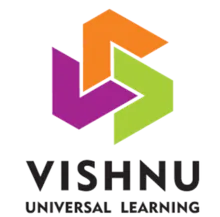Overview
“To the Optimist the glass is half full. To the pessimist the glass is half empty. To the engineer the glass is twice as big as it needs to be.”
The Department of Information Technology launched in the year 2012, focus on comprehensive learning to benefit the students in making significant contributions to the Information Technology industry and to serve the society big.
The department strive obstinately for achieving excellence in computing disciplines from its inception and pursued through its gamut of academic programmes by offering B. Tech (IT) degree with an intake of 60 (120 from 2019) and M. Tech (Data Sciences) with an intake of 18 from 2020.
The faculty members are highly motivated with pioneer research and excel in teaching and learning processes. They deliver opportunities for the students to smear the assimilated knowledge for solving real-world problems and gaining graduate research experience.
The Department has well equipped classrooms and computer laboratories with high-end systems with LAN & Wi-Fi connectivity. The department has many industry support and Centres of Excellence status in Data Science. The student’s placement record of the department is continuously impressive.
The foremost objective of the department is to produce computing graduates with the calibre to design and develop computing systems that involves software and hardware integration by employing state-of-the-art approaches in programming and problem-solving skills. In addition, it strives to build data/computing infrastructure for the organization.
Vision
To emerge as a center of excellence in Information Technology and to produce women technocrats, global leaders for better tomorrow.
Mission
M1: To impart quality education and inculcate problem solving skills using latest technologies in the field of Information Technology.
M2: To encourage multidisciplinary research and consultancy projects.
M3: To promote industry academia linkage and also enhance entrepreneurship skills in women engineers.
Program Outcomes (POs)
Program Educational Objectives (PEOs)
PEO 1: Develop strong analytical skills using fundamental concepts of science & engineering subjects.
PEO 2: Excel in programming and critical thinking by applying core technical knowledge.
PEO 3: Exhibit continuous learning related to evolving technologies in their professional career.
PEO 4: Demonstrate ethical behavior, team work & leadership qualities to solve problems in broader social context.
Program Specific Outcomes (PSOs)
PSO 1: Formulate, simulate and use knowledge in various domains like Computer systems, data engineering, information and network security, artificial intelligence etc., thus enabling them for a better career path.
PSO 2: Provide optimized solutions using open-ended programming environment by following industry practices and strategies.





